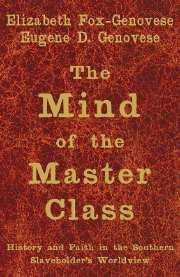Book contents
- Frontmatter
- Contents
- Preface
- List of Abbreviations
- Prologue
- PART ONE CRADLED IN THE STORMS OF REVOLUTION
- PART TWO THE INESCAPABLE PAST
- PART THREE ANCIENT LEGACIES, MEDIEVAL SENSIBILITY, MODERN MEN
- PART FOUR A CHRISTIAN PEOPLE DEFEND THE FAITH
- 13 A Christian People
- 14 Unity and Diversity among the Faithful
- 15 War over the Good Book
- 16 Slavery: Proceeding from the Lord
- 17 The Holy Spirit in the Word of God
- 18 Jerusalem and Athens – Against Paris
- 19 Serpent in the Garden: Liberal Theology in the South
- 20 Theopolitics: Golden Rule, Higher Law, and Slavery
- Coda: St. John of Pottawatamie
- PART FIVE AT THE RUBICON
- Epilogue: King Solomon's Dilemma
- Supplementary References
- Index
13 - A Christian People
Published online by Cambridge University Press: 05 June 2012
- Frontmatter
- Contents
- Preface
- List of Abbreviations
- Prologue
- PART ONE CRADLED IN THE STORMS OF REVOLUTION
- PART TWO THE INESCAPABLE PAST
- PART THREE ANCIENT LEGACIES, MEDIEVAL SENSIBILITY, MODERN MEN
- PART FOUR A CHRISTIAN PEOPLE DEFEND THE FAITH
- 13 A Christian People
- 14 Unity and Diversity among the Faithful
- 15 War over the Good Book
- 16 Slavery: Proceeding from the Lord
- 17 The Holy Spirit in the Word of God
- 18 Jerusalem and Athens – Against Paris
- 19 Serpent in the Garden: Liberal Theology in the South
- 20 Theopolitics: Golden Rule, Higher Law, and Slavery
- Coda: St. John of Pottawatamie
- PART FIVE AT THE RUBICON
- Epilogue: King Solomon's Dilemma
- Supplementary References
- Index
Summary
[Southerners] have progressed as far in civilization, and in many respects, much farther than any people in the whole country. A very large portion of them are confessedly pious, as well as intelligent. Taken as a whole, they are eminently entitled to be regarded a religious people as any other people on the face of the globe.
—William A. Smith (1856)Charlestonians had a “fashionable but shameful vice,” so the intellectual Eliza Lucas Pinckney, probably America's first agriculturalist with claims to greatness, mused in 1741: They ridiculed religion, “pretending” to disbelief. In the late 1760s, James Iredell of North Carolina, a future U.S. Supreme Court justice, penned a scathing indictment of the supercilious wealthy coastal planters who considered religious people “morose,” “unreflecting,” and “unsocial” or “unsound.” In the 1820s Margaret Hunter Hall, British aristocrat, found wealthy residents of Charleston, Columbia, and Savannah still indifferent to religion, and as late as 1839 the Reverend Moses Drury Hoge protested French infidelity among the Virginia gentry.
But by 1836, President Thomas Roderick Dew of the College of William and Mary announced that “the enlightened portion of the world” considered infidelity a sign of weak mind or heart: “The argument is now closed forever, and he who now obtrudes on the social circle his infidel notions, manifests the arrogance of a literary coxcomb, or that want of refinement which distinguishes the polished gentleman.” In the 1850s and 1860s, Bishops William Meade of Virginia and Stephen Elliott of Georgia exulted in the decline of infidelity and the advance of evangelicalism. Dew, Meade, and Elliott claimed victory in a long, hard-fought struggle that had begun with the great religious revival at Cane Ridge in 1801.
- Type
- Chapter
- Information
- The Mind of the Master ClassHistory and Faith in the Southern Slaveholders' Worldview, pp. 409 - 443Publisher: Cambridge University PressPrint publication year: 2005



